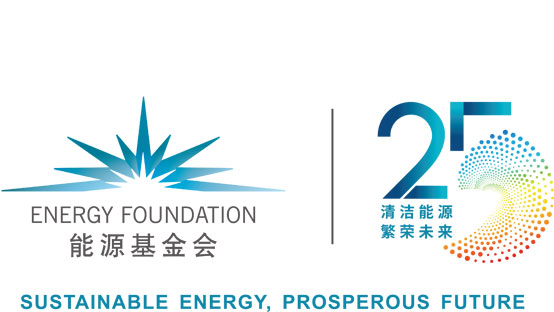Dec 31, 2017
Promoting China’s Environmental Technologies: Current Status and Recommendations for Improvement
With the support of Energy Foundation China, the China Association of Environmental Protection Industry carried out a research project to promote environmental technologies in the country. Researchers analyzed problems in how environmental technologies are currently promoted, and then offered suggestions for future improvement.
Nov 1, 2017
Guideline for Disaggregated Coal Control and Clean Heating; Case Studies on Clean Heating Technologies
The Innovation Center for Clean-air Solutions and the Beijing Municipal Research Institute of Environmental Protection studied clean energy transformation in the Beijing-Tianjin-Hebei region and produced two reports: the Guideline for Disaggregated Coal Control and Clean Heating, and the Case Studies on Clean Heating Technologies. They provide technical assistance to local cities that seek to control disaggregated coal use. The research was supported by Energy Foundation China.
Sep 27, 2017
How to Reach Air Quality Standard of PM2.5 in China by 2030 -- a numerical simulation discussion based on energy and end-of-pipe control scenarios
In order to support the potential of achieving long-term improvement of air quality in China, the Energy Foundation China supports Tsinghua University to conduct a study on How to Reach Air Quality Standard of PM2.5 in China by 2030. Based on the results from energy forecasting model, emission inventory, and air-quality model, this report provides recommendations for the major cities of China to reach Air Quality Standard of PM2.5 in near future.
Sep 26, 2017
The Hidden Costs of China’s Coal-to-Chemical Sector -- A framework to stress test investments for environmental risks
To better inform investment decision making, this study develop a pragmatic framework for investors to assess environmental risks using the coal-to-chemical sector as an example. This report is developed by the Trucost and S&P Dow Jones Indices, and is supported by Energy Foundation China.
Jun 27, 2017
A Clear Opportunity: U.S.-China Collaboration on Clean Air
China’s emergence as a global economic Powerhouse has been remarkable. However this economic success was not achieved without environmental consequences. China is now one of the world’s largest greenhouse gas emitters and the country is facing severe air pollution challenges.
Oct 20, 2015
Low Carbon Cities in China: National Policies and City Action Factsheets
China has also initiated 42 low carbon pilots, including 6 provinces and 36 cities, which represent various geographic locations, resource endowments, economic growth patterns, industrial mixes, and energy-use behaviors. These pilots have developed and implemented many policies, programs, and measures to achieve low carbon development paths at the provincial and municipal levels in the long term. Factsheets in this document are based on analyzing actions in 10 cities out of the 42 low carbon pilots.
Mar 3, 2015
10 Key Principles for Local Air Quality Management
As China’s government moves to more assertively reduce air pollution, Energy Foundation China and its partners Clean Air Alliance of China, ClimateWorks, and the Regulatory Assistance Project have compiled a list of 10 key principles for sound air quality management. These principles are offered to China’s local governments to assist them in meeting their increasingly demanding air quality improvement targets. They can also help reduce greenhouse gas emissions (GHGs) – an environmental issue that China is also now taking stronger actions on. These principles help reduce air pollution and GHGs at the same time, bringing synergy and cost-effectiveness to air quality and climate policy.
Oct 11, 2014
Can Beijing, Tianjin and Hebei Achieve Their PM2.5 Targets by 2017?
In this study, we combined Beijing-Tianjin-Hebei regional emission inventories and Community MultiScale Air Quality (CMAQ) modeling to evaluate the air quality improvement effect in the region.
Sep 22, 2014
Analysis of carbon reduction co-benefit of coal cap policy
This study shows that coal consumption control can significantly contribute to both air pollution control and Greenhouse Gases (GHGs) reduction.
Apr 1, 2013
Summary Report of China Black Carbon Studies and Control Policies
This report delivers a summary of scientific studies and control measures and policies on black carbon in China based on the third “International Workshop on Black Carbon: Impacts and Control Strategies”.





